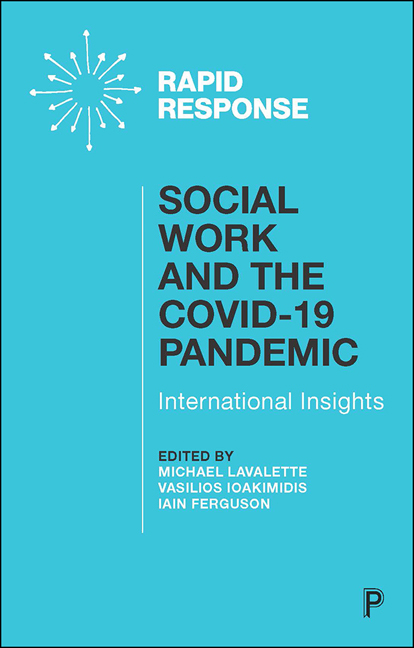19 - Re-Racialisation of Migrants and the ‘Refugee Crisis’ During COVID-19
Published online by Cambridge University Press: 23 March 2021
Summary
The world in 2020 is radically different from the year before. A major sociopolitical transformation due to an ‘exogeneous’ factor has begun. COVID-19 has brought the celebrated ‘world on the move’ to a standstill. We could imagine neither the scale nor the depth of the panic and global state of emergency against what might be termed “miasmic deviants” (Sitas et al. 2015).
We are in the middle of accentuated processes of exclusion, racialisation, marginalisation and expulsion of migrants, refugees and ‘the damned of the earth’. New borders and bordering processes generated, as old ones are invigorated. These dynamics have rekindled ‘old’ and ‘new’ forces in Europe and the globe, bringing about the collapse of consensus in politics and generating a ‘politics of hate’. Dissensus reigns and migration and asylum are at the heart of these processes (Trimikliniotis 2020). This chapter will primarily focus on these processes in the eastern Mediterranean.
New struggles of resistance are emerging in a system flipping ‘out of joint’ (Wallerstein 2015) against the competing reactionary camps of ‘fixers’: on the one hand, the mainstream ‘managers’ of neoliberal globalisation, in their 40- odd-year reign are essentially calling for more of the same. Against them, we have the reactionaries of the ‘new’ far right calling for ‘authoritarian restoration’ of the ‘old’ order: nostalgic for some idealised ‘golden age of nationstates’, a (bizarre) bygone era of ‘authentic’ national or ethnic ‘homogeneity’ that has never existed.
After the pandemic nothing will go back to the status quo ante; no matter how the powerful pretend that it will be ‘business as usual’. The new ‘brave world’ before us may well be a truly dystopian one: denial on the one hand, when it comes to the threat from the ‘deviant other’ coupled with authoritarian restrictions, algorithmic discriminations, mobility barriers and new racialisation processes. While COVID-19 effects last, this is likely to be based, it seems, on what I have previously termed ‘miasmic deviance’ (Sitas et al. 2014). The two reactionary forces are converging on this. But the world is heading towards more instability, massive inequalities, threats of wars and intra-state vitalities and breakups and environmental disasters.
Migration and asylum are at the top of the political agenda of disagreement.
- Type
- Chapter
- Information
- Social Work and the COVID-19 PandemicInternational Insights, pp. 137 - 144Publisher: Bristol University PressPrint publication year: 2020



